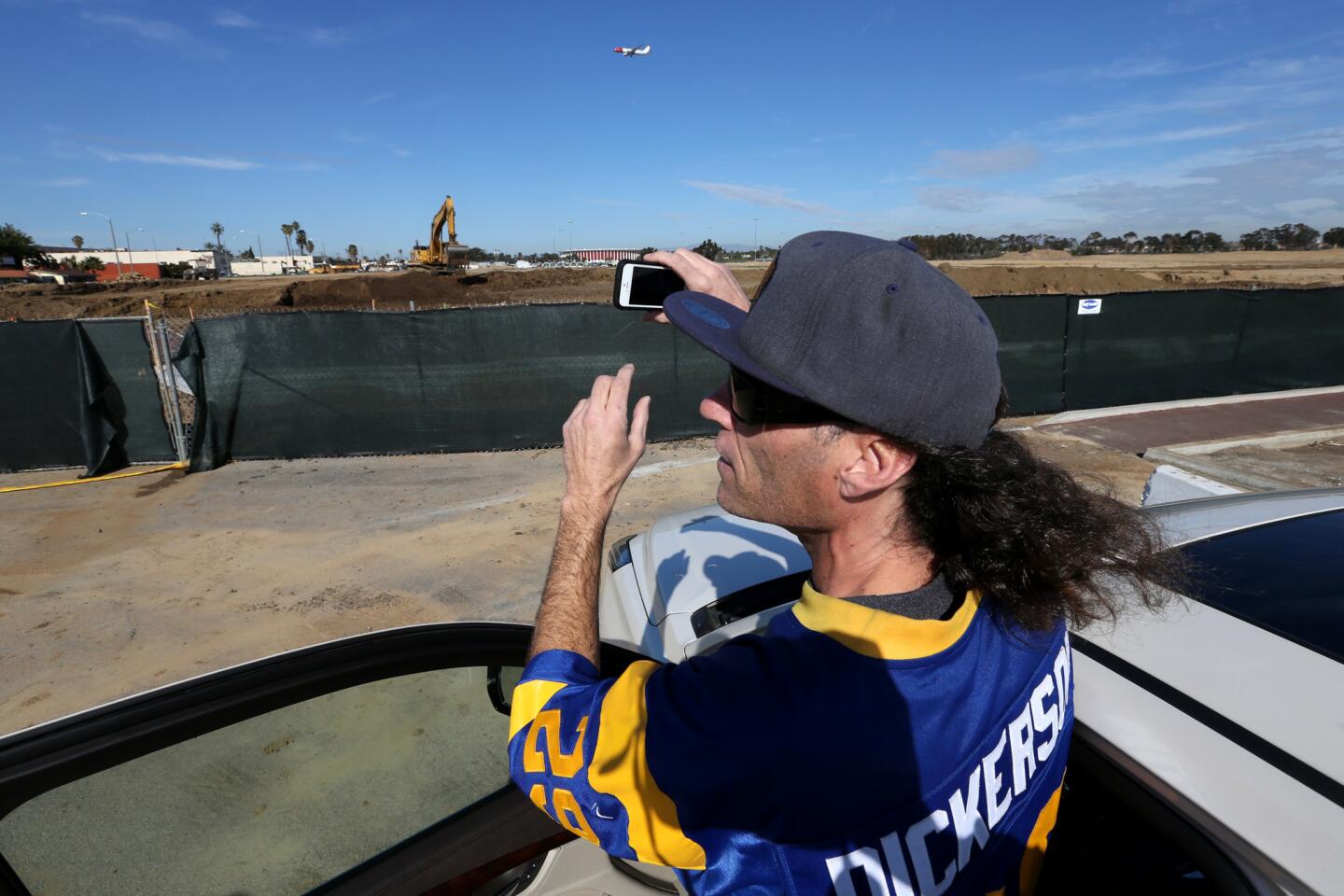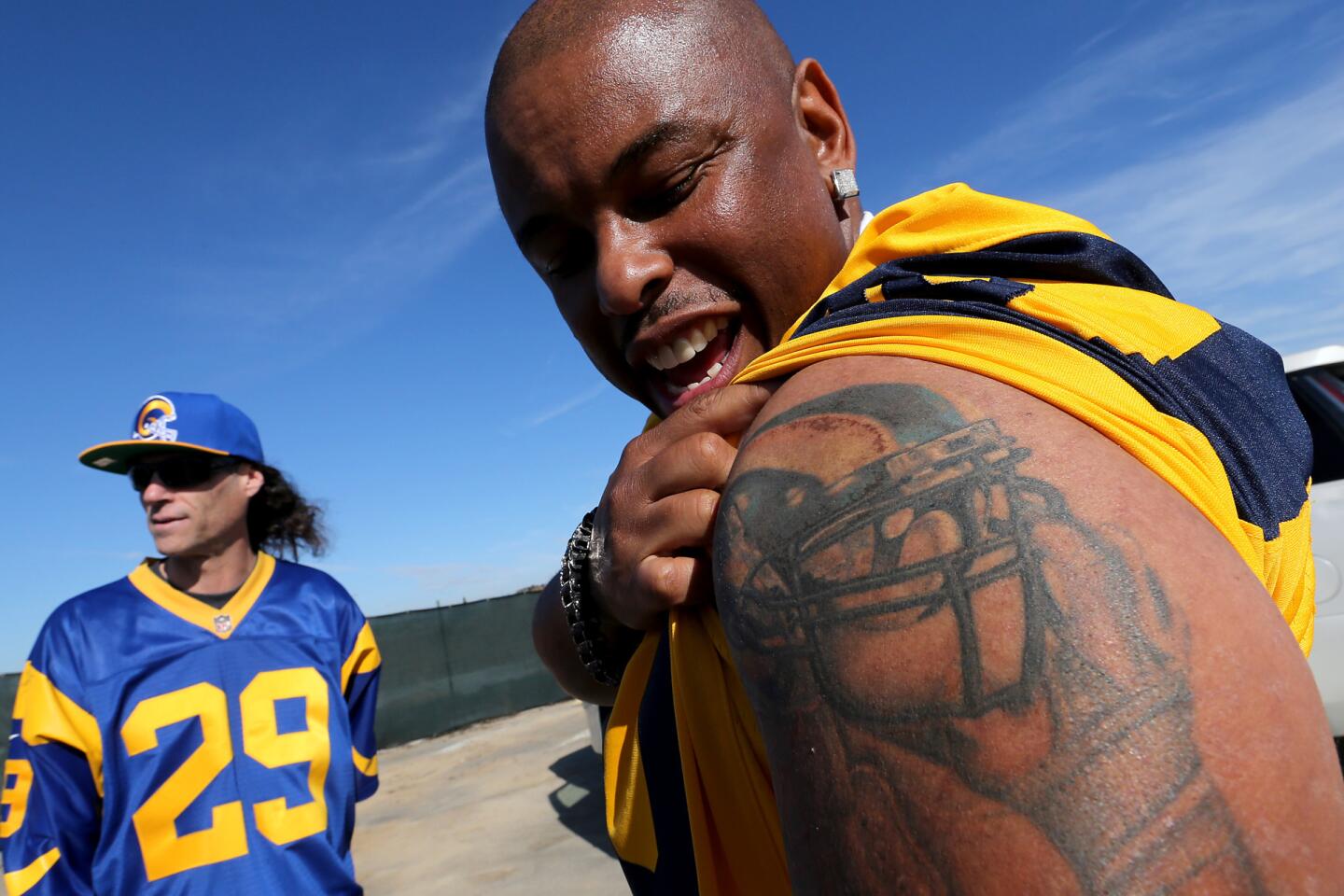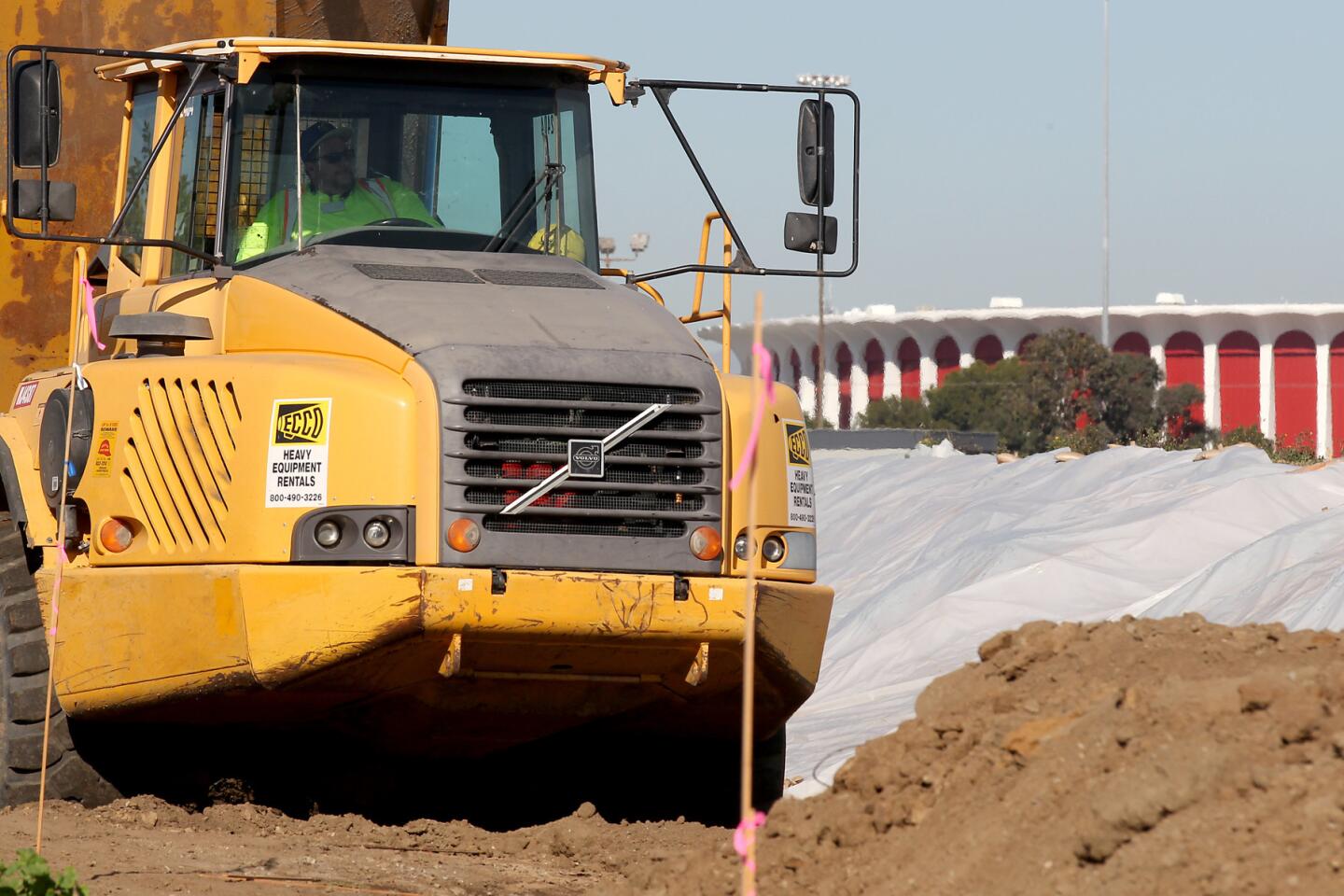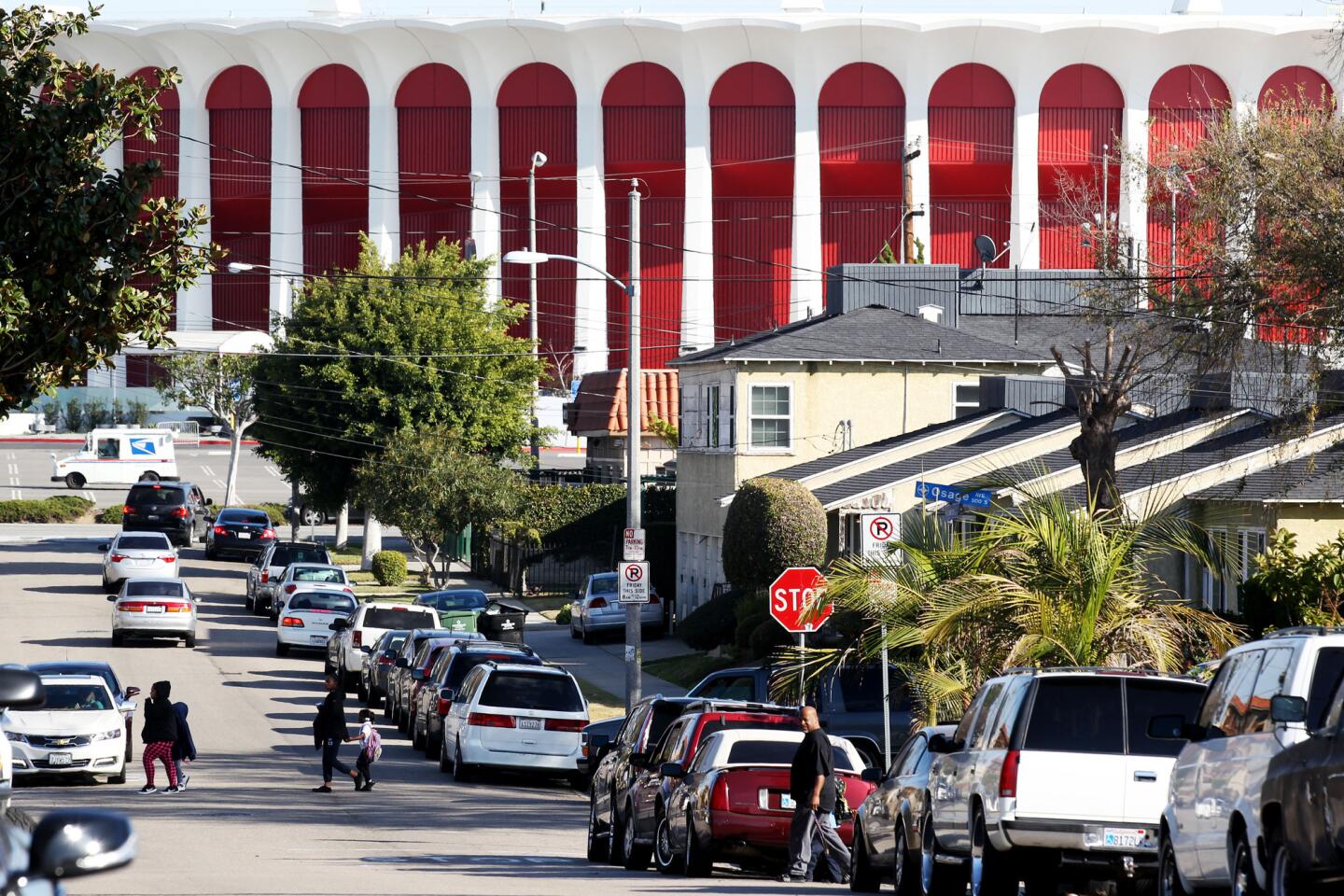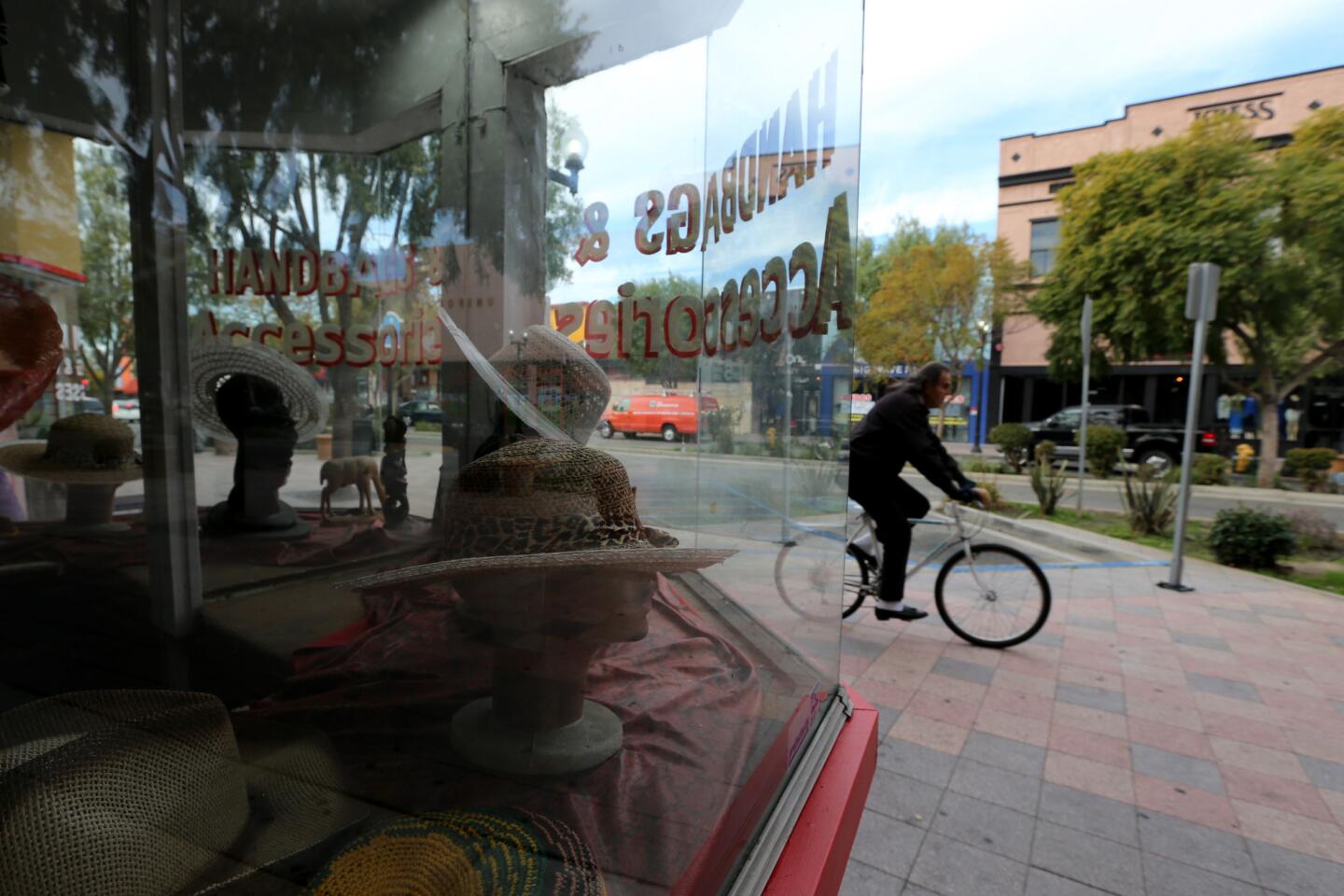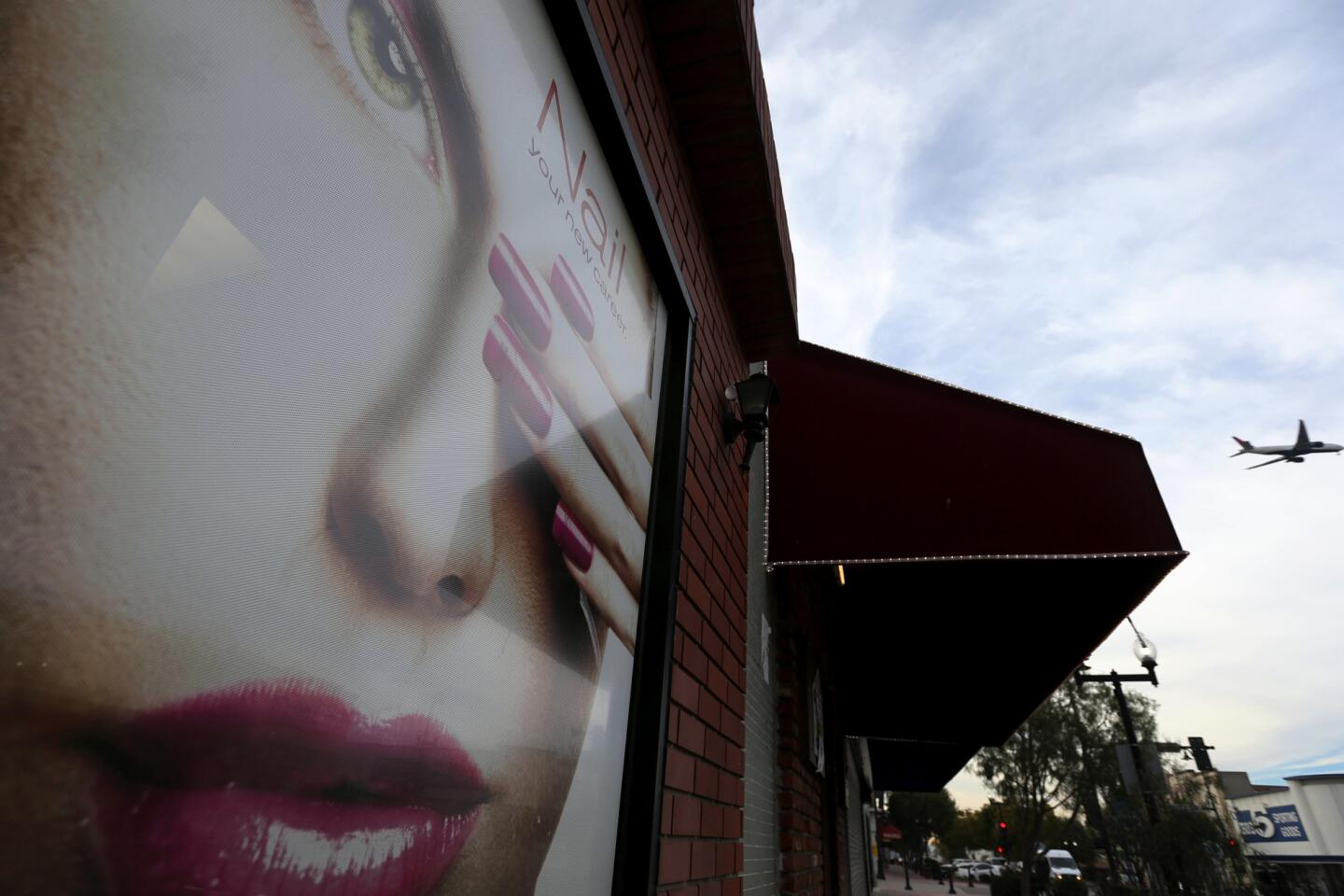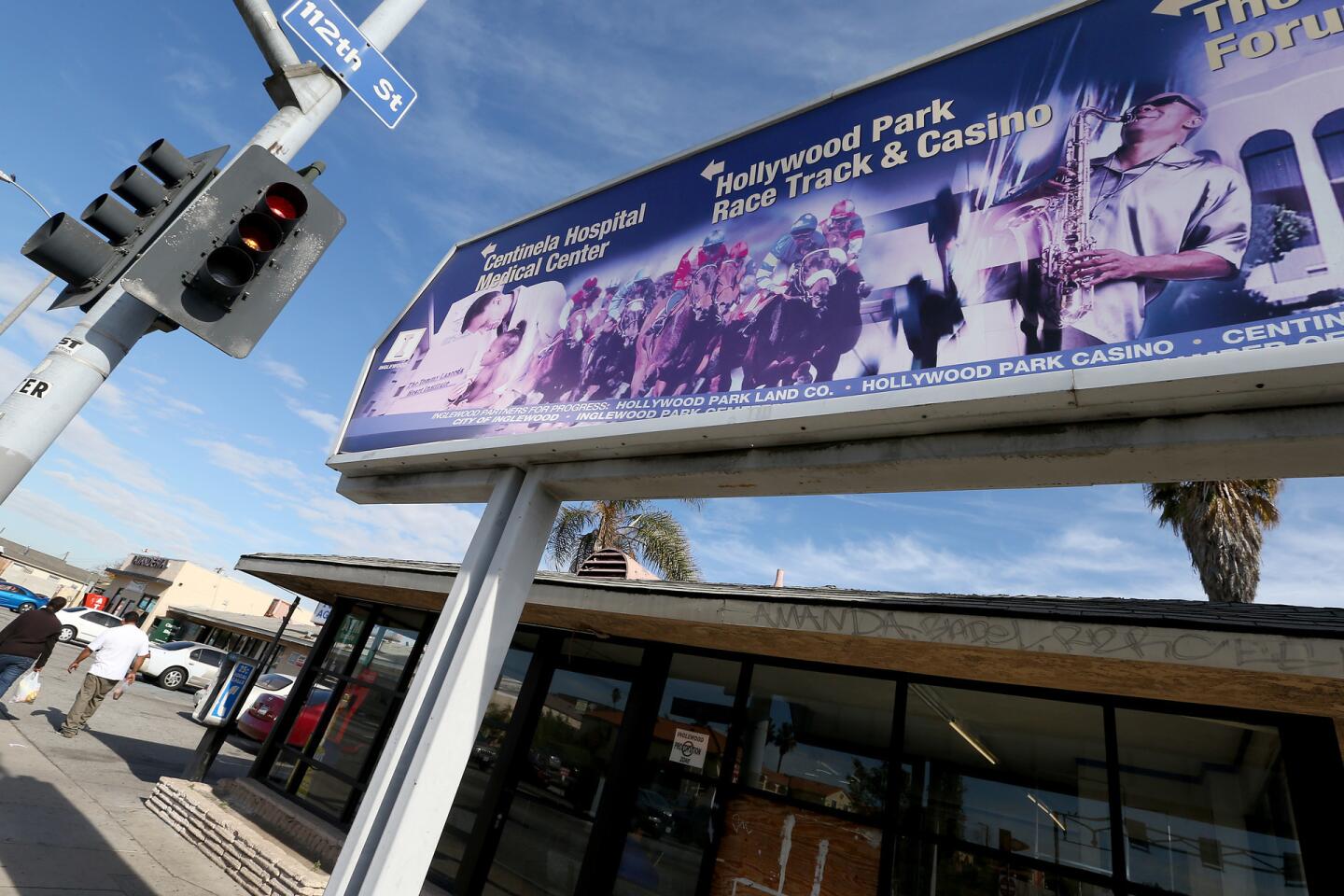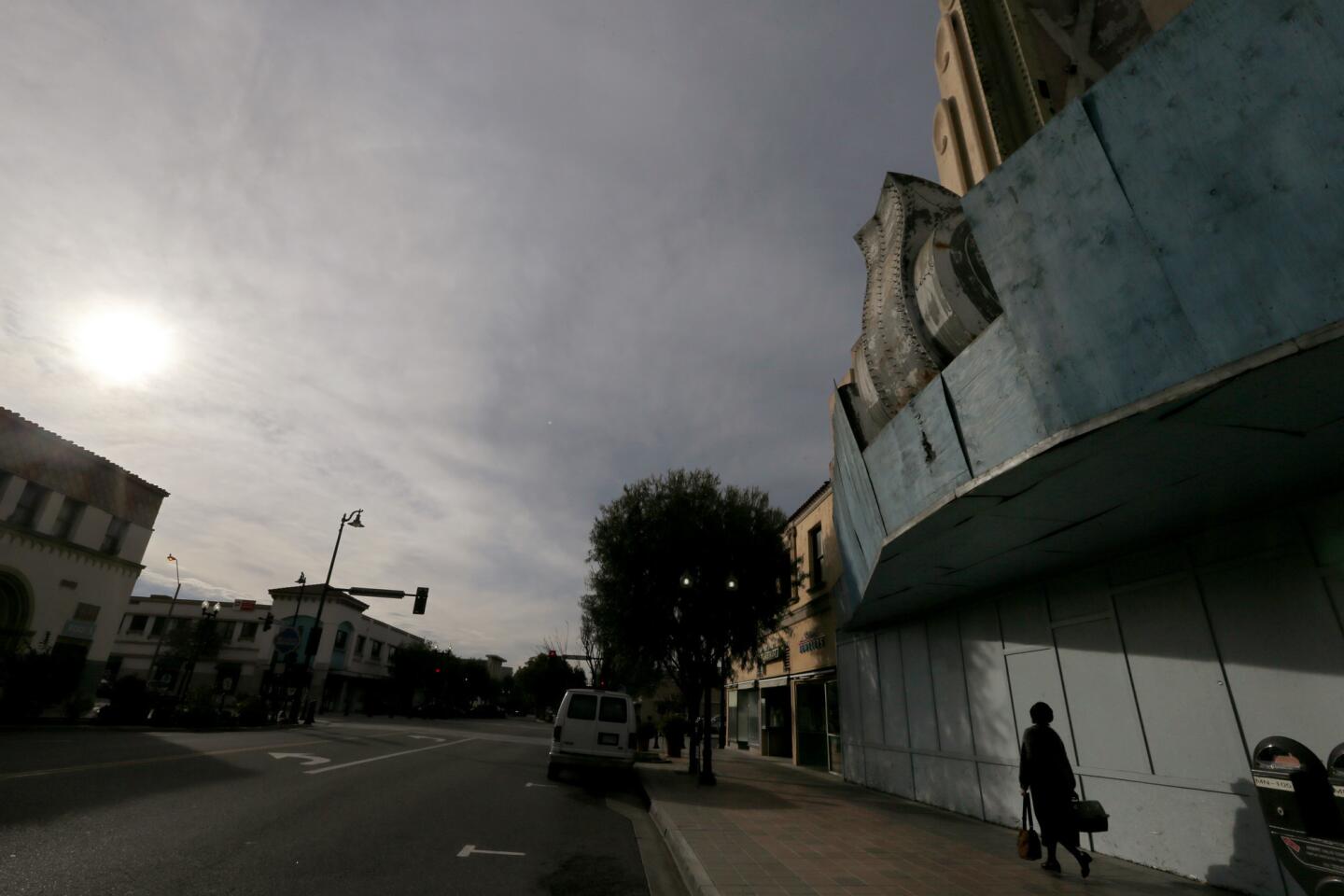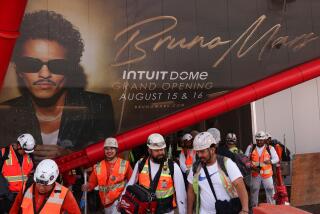Will Inglewood score big with the NFL’s return?
Not long ago, Inglewood’s prospects looked bleak. The city was verging on bankruptcy, its schools were destitute, and it had been a long time since people called it the “City of Champions” — once a nod to the world-champion Lakers — without irony.
But in recent years, the nine-square-mile city with a population of just 110,000 has shown signs of a stunning turnaround. The Forum, which the Lakers left in 1999, was reopened as a lavish concert venue. Developers announced that the Hollywood Park racetrack, closed in 2013, would be the site of a massive retail and residential complex.
And this week came the most dramatic news yet: the Rams were returning to Southern California — possibly to be joined by a second team — to play in a planned stadium in Inglewood touted as the most glorious in the country.
Inglewood is dead. There’s nothing going on. Every day we are struggling. ... Today I only made $10.
— Bass Lo, runs a clothing shop
“Inglewood needs this,” Bass Lo, 57, who has run a clothing shop in the city’s downtown area for 25 years, said Wednesday. Next door stand two empty businesses; across the street, a building has been boarded up for years. “Inglewood is dead. There’s nothing going on. Every day we are struggling. … Today I only made $10.”
The NFL will definitely bring some national attention — and jobs — to Inglewood. But if history is any guide, professional sports alone is no panacea.
“It takes more than a stadium that everybody is driving to from somewhere else to revitalize an economy,” said Chris Tilly, director of the UCLA Institute for Research on Labor and Employment. “This will put Inglewood on the map in the loosest sense of the word.... One project, even a project that will end up in the sports pages, is not going to cut it.”
Experts say the stadium and planned retail development nearby should boost construction and concession jobs, which could help establish Inglewood as a shopping and entertainment destination similar to L.A. Live, which is next to Staples Center.
To city leaders, it offers the community a chance to relive the splendor of the Lakers’ “Showtime” era.
“We had identity,” Inglewood Mayor James T. Butts said Wednesday. “We were home to the world champions, the Los Angeles Lakers. We had a hockey team. We would have Triple Crown winners race” at Hollywood Park.
The arrival of football is a much-needed “double shot in the arm,” Butts said. “Now that this has happened it’s a real boost for civic pride.”
Erin Aubry Kaplan, an Inglewood resident and writer, said she understands the excitement about having a football team but is skeptical about its economic value.
“We’ve had sport venues before and franchises here,” Kaplan said. “It did not automatically translate into a better Inglewood and I don’t know if this is going to be any different unless it is done differently.”
Inglewood is helped by its location. The wave of gentrification that has swept through downtown Los Angeles and Westside neighborhoods like Venice Beach and Playa del Rey could move toward Inglewood, driving up housing prices and spurring new development.
“Inglewood is very close to all these places, and it wouldn’t take much to tip it,” said Tilly, the UCLA expert.
Derrick Brown, a 30-year Inglewood resident, stood outside his seafood-and-grill restaurant Wednesday talking with a friend about the city’s future.
“It’s going to create a lot of jobs, a lot of businesses and a lot of growth for the city,” said Brown, 50. “It felt like we were going backwards for a while and now it’s going forward.”
“You’re not going to recognize Inglewood in the next three to four years,” added Brown’s friend, Michael Benbow, 66.
When the Forum was remodeled a few years ago, Brown began to see the first sign that Inglewood was turning a corner. Concertgoers were coming to his restaurant, including the workers who set up the stage inside the arena.
“One time we stayed up until 2 a.m., serving food,” Brown said.
He said he plans to remodel his business at some point, possibly before the stadium is built.
Down the block, on Prairie Avenue, Shankar Patel, 55, owner of the Hollywood Park motel, said he too wants to renovate his property, which sits across from the site of the future stadium.
Patel said he hopes whatever plans the city may have for his side of the street will include his business.
“We want to be here, on this spot,” Patel said. “It would be nice to be part of this.”
Most stadiums are used only a handful of days each year and don’t draw enough consistent foot traffic to persuade other businesses to open up shop there, said Andrew Zimbalist, a Smith College professor who studies the economics of sports.
The rest of the Hollywood Park development, including retail spaces and a hotel, could help Inglewood rebrand itself as an entertainment district like L.A. Live, but “even an area like Los Angeles can only absorb so many of those,” he added.
Few small cities like Inglewood have seen an investment as significant as a NFL stadium, Zimbalist said, adding that the closest comparison to Inglewood may be the Barclays Center in New York City. The 18,000-seat arena, which opened in 2012, is the anchor of a $4.9-billion redevelopment project on a rail yard in Brooklyn.
Billed as the borough’s “newest neighborhood,” the 22-acre site will eventually include restaurant spaces, shopping and more than 6,300 apartments.
Some in Los Angeles have expressed worries about the traffic generated by football games in an already-congested area.
Butts waved off such concerns, saying construction of the LAX/Crenshaw line will make the area more accessible. Metro will shuttle people on buses to the venue from a stop at LaBrea and Florence, two miles away.
See more of our top stories on Facebook >>
Along Inglewood’s major thoroughfares, there are still faded blue signs welcoming people to the “City of Champions.”
Five years ago, Inglewood was part of a growing list of U.S. cities on the brink of bankruptcy.
The city laid off 140 employees, renegotiated several labor agreements and outsourced some city services, which allowed officials to stabilize the budget, Butts said.
“Cities usually don’t turn around like this particularly when they are on the verge of bankruptcy,” Butts said.
The Hollywood Park project is projected to bring 22,000 construction jobs over the six or seven years it is expected to complete the development, and create 12,000 full- and part-time jobs at completion. A local-hiring goal of 30% has been set by the city and developers, Butts said.
He said the city is expected to receive $13 million to $14 million in sale taxes revenue from material alone, and once the football games begin, about $16 million to $20 million in revenue from the stadium, commercial and housing development.
Christopher Thornberg, a founding partner of the Los Angeles consulting firm Beacon Economics, said the stadium is part of a larger economic boom in Southern California.
“Inglewood is going to do well over the next decade with or without the stadium,” Thornberg said. “The football team coming back to L.A. is a sign of L.A.’s success, not a creator of L.A.’s success.”
Times staff writer Laura J. Nelson contributed to this report.
Twitter: @angeljennings
Twitter: @LATvives
Twitter: @LATchrisgoffard
ALSO
California winner will have to share $1.5-billion Powerball jackpot
Another rare, venomous sea serpent washes ashore in Southern California
More to Read
Sign up for Essential California
The most important California stories and recommendations in your inbox every morning.
You may occasionally receive promotional content from the Los Angeles Times.
